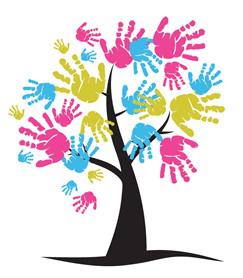 Why would someone want to become a child advocate? The best advocate for a child who is in a stable and nurturing home is his parent. When there is domestic violence in the home, though, or child abuse or neglect, the child is often removed from this home and needs someone to step in and fill the gap created by separation from his parents. That person is usually a social worker who functions as a child advocate.
Why would someone want to become a child advocate? The best advocate for a child who is in a stable and nurturing home is his parent. When there is domestic violence in the home, though, or child abuse or neglect, the child is often removed from this home and needs someone to step in and fill the gap created by separation from his parents. That person is usually a social worker who functions as a child advocate.
Are Child Advocates Always Social Workers?
Child advocacy is a broad term that encompasses many aspects of a child’s life. Teachers can be great child advocates, for instance. The legal system has child advocates who are lawyers. These are known as Guardians Ad Litem. They represent the best interests of children in court and in meetings with human services departments. Every child in the foster care system is assigned a G.A.L., but there are not enough to handle the job effectively, so there are paralegal paid and volunteer positions called C.A.S.A. workers that handle contacts and other issues. For the purposes of this article, though, we are limiting the scope of “child advocate” to a social worker.
What Do Child Advocates Do?
According to Human Services Education, these professionals as social workers who specialize in placement of children in foster and adoptive homes. The safety of the child and of the family into which they are placed is paramount. Permanency is the goal of each placement. This is a reversal of the policy thirty years ago when foster parents were not allowed to adopt the children who were placed with them. Today, foster families are encouraged to consider adoption and so thorough assessment of the child and the family in deciding suitability for the match is vital. Child advocates do home studies of prospective placements and relate the medical and social histories of the children to the families. They place the children and visit periodically to monitor the placement. They access resources to provide practical assistance to the families like scheduling counseling for the child. Child advocates attend each court proceeding pertaining to the child or to the placement and keep relative documents.
How Do I Become a Child Advocate?
Child advocates have a minimum of a bachelor’s degree in social work, sociology, psychology or a like discipline. If you know in advance that you want to work in child placement, you can specialize your degree with appropriate courses in child psychology, child development, substance abuse and other courses that will give you insight into the cases you will handle as a child advocate. Your degree is enough to get you an entry-level position, but not licensure. If you don’t intend to get a graduate degree, you can apply to a department of human services immediately. However, according to Idealist, many agencies prefer licensed applicants. Some states will license people with undergraduate degrees after they obtain two- to-three years of supervised work experience and pass an exam. All states will license workers with master’s degrees after the same considerations.
Related Resource: Social Work Internships
Children often are powerless to protect themselves against neglect and abuse. When you make a difference for children, you change their outcomes, and that affects the futures of their children. That ability to change the future is a great reason to become a child advocate.
 Follow
Follow